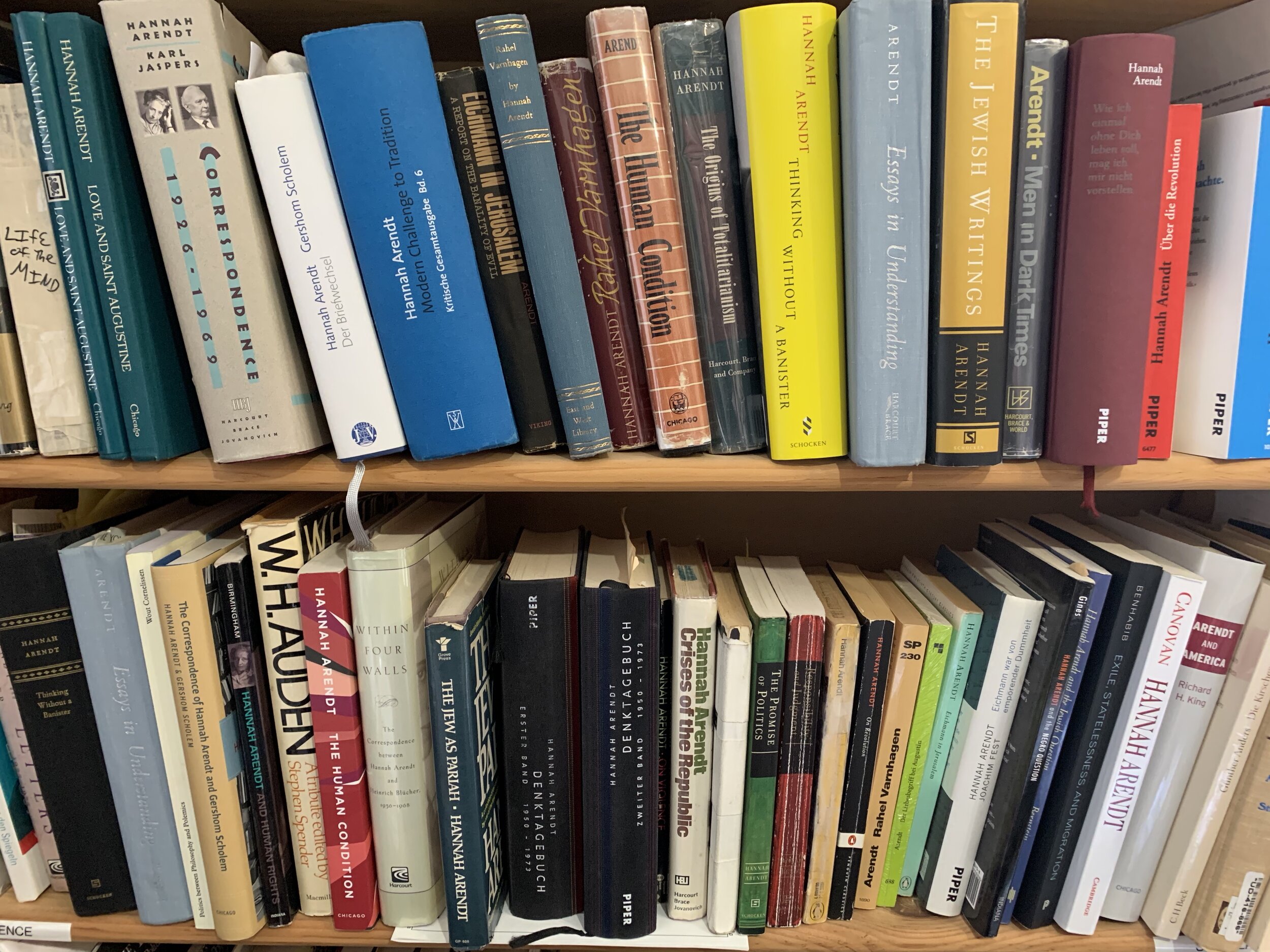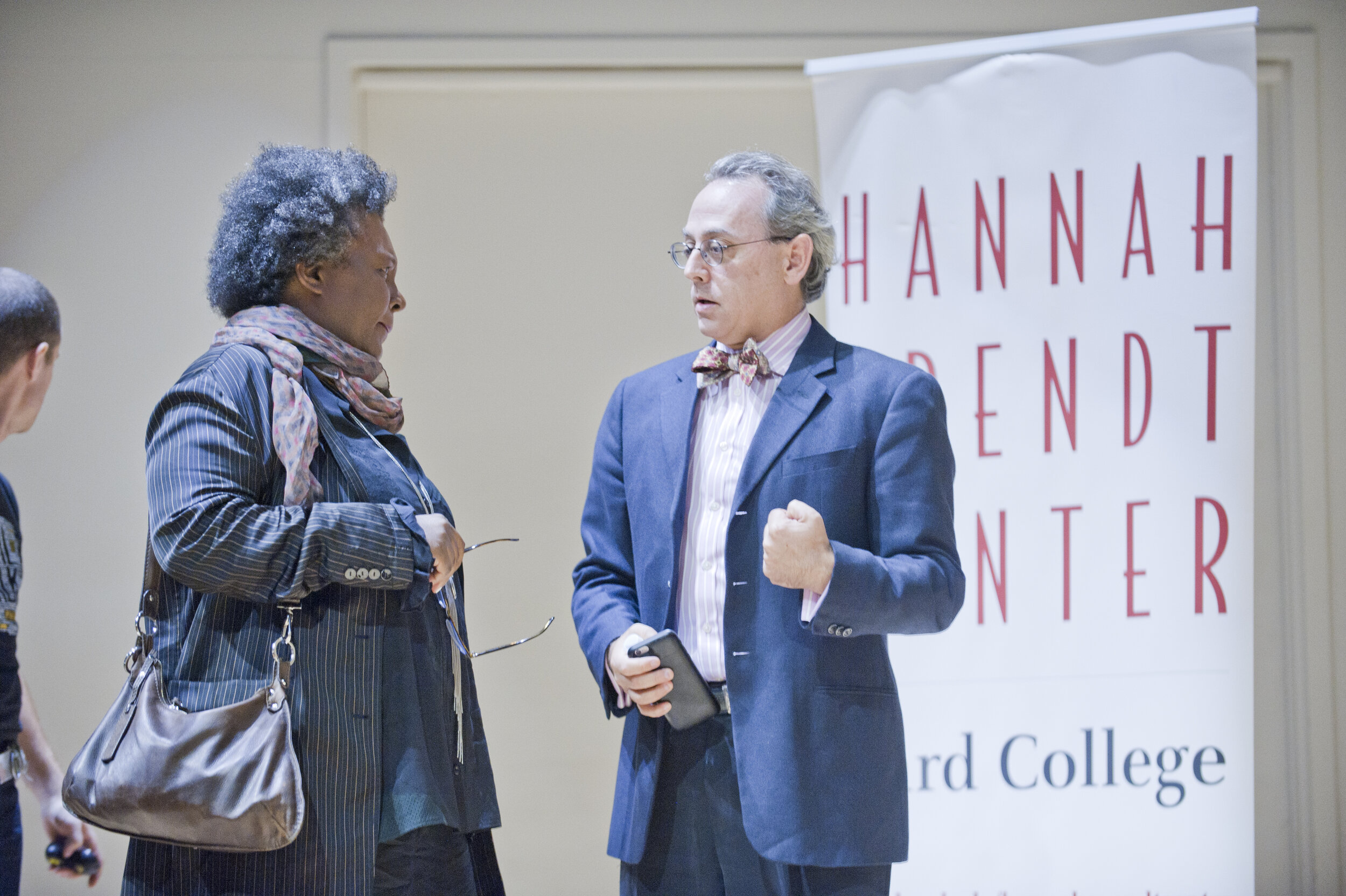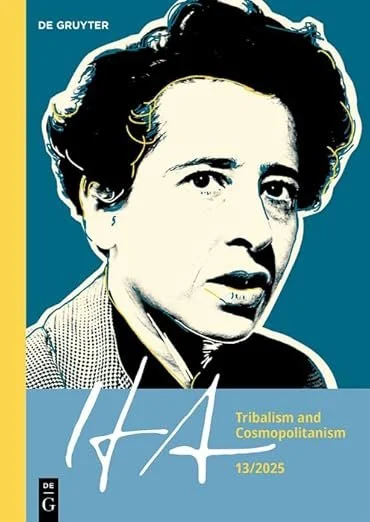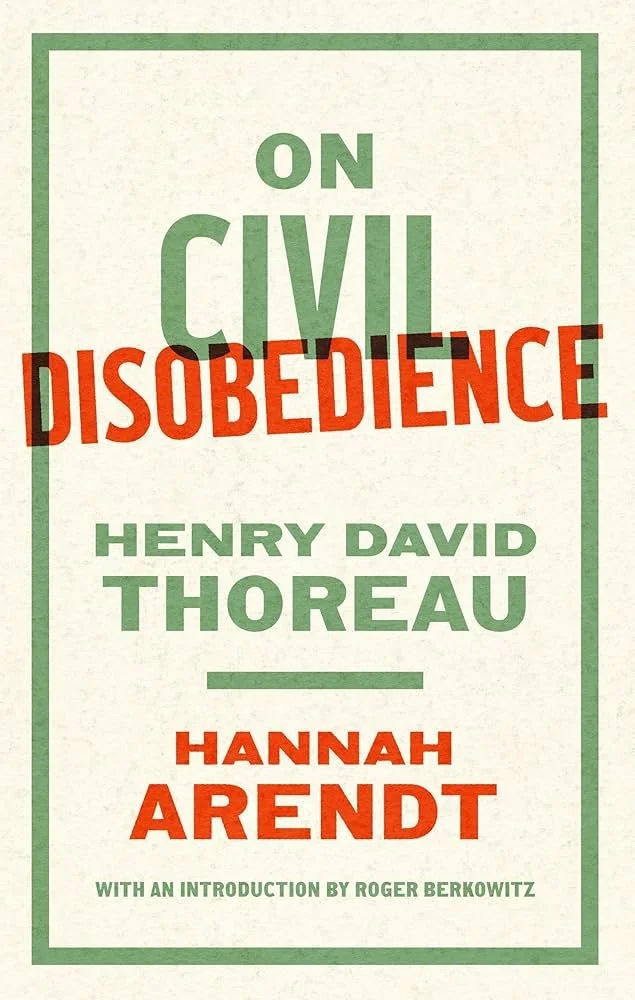About Roger
Roger Berkowitz is Founder and Academic Director of the Hannah Arendt Center for Politics and Humanities and Professor of Politics, Philosophy, and Human Rights at Bard College.
He is author of The Gift of Science: Leibniz and the Modern Legal Tradition (Harvard, 2005, Fordham, 2010; Chinese Law Press 2011) and his new book A World We Share: Hannah Arendt and the Power of Friendship in a Broken World will appear in 2026 from Yale University Press.
Berkowitz is the host of the podcast, Reading Hannah Arendt with Roger Berkowitz. He is also a regular panelist on The Roundtable, a daily news show for WAMC, the NPR affiliate in Albany, NY, and hosts For the Love of the World on Radio Kingston. Berkowitz wrote the Introduction for On Civil Disobedience: Henry David Thoreau and Hannah Arendt (Library of America, 2024), and he has edited Tribalism and Cosmopolitanism (DeGruyter, 2025) and Perils of Invention: Lying, Technology and the Human Condition (Blackrose Books, 2022). He is co-editor of Thinking in Dark Times: Hannah Arendt on Ethics and Politics (2009), The Intellectual Origins of the Global Financial Crisis (2012) and Artifacts of Thinking: Reading Hannah Arendt's Denktagebuch (2017). His writing has appeared in The New York Times, The American Interest, Bookforum, The Paris Review Online, Democracy: A Journal of Ideas, and many other publications. He is a co-editor of the book series "Thinking With Arendt" published by DeGruyter and past editor of Just Ideas, a book series published by Fordham University Press.
Berkowitz writes the weekly Amor Mundi newsletter for the Hannah Arendt Center. He is also editor of HA: The Yearbook of the Hannah Arendt Center.
Professor Berkowitz is the winner of the 2024 Compassion Prize given by Con-solatio and the 2019 Hannah Arendt Prize for Political Thought, given by the Heinrich Böll Foundation in Bremen.

Roger’s Books
HA: The Yearbook, Volume 13
The Make America Great Again (MAGA) movement in the United States gives voice to a rising nationalism and tribalism we see around the world, from Modi’s India, to Putin’s Russia, Orban’s Hungary, and Netanyahu’s Israel. Against such a tribalism is the dream of a world citizenship, the cosmopolitan ideal that sees all human beings as part of one large political world. Tribalism and Cosmopolitanism is dedicated to exploring the humanity of both tribal affiliation and cosmopolitan dreams.
Published by De Gruyter Brill, the Hannah Arendt Yearbook, Volume 13 centers on the compelling theme of Tribalism and Cosmopolitanism, featuring edited transcripts from the annual Hannah Arendt Center conference that took place in October 2024 at Bard College. For those who crave deeper engagement with the ideas explored at our annual conference, the new edition provides unparalleled access to scholarly discourse, with insightful essays by prominent thinkers such as Sebastian Junger, Fintan O’Toole, Seyla Benhabib, Leon Botstein, Lyndsey Stonebridge, Uday Mehta, and more.
With the Hannah Arendt Center’s acquisition of the exemplary humanities journal, Lapham’s Quarterly, we are incorporating Lapham’s model of supplementing contemporary essays on a theme with excerpts from classic reflections. As a result, you will find here texts relating to both tribalism and cosmopolitanism from Anthony Appiah, Hannah Arendt, Aristotle, Thomas Aquinas, Emile Durkheim, Epictetus, Sigmund Freud, Immanuel Kant, Ibn Khaldûn, Martha Nussbaum, and more. The goal is to offer a rich and broad introduction to the inquiry into the human tension between our need to belong to tribes and our aspirations to cosmopolitan humanism. In addition, the mixing of present scholarship with classic texts provides a sourcebook for those who would like to explore these questions with more depth.
Available for pre-order through De Gruyter Brill and retailers such as Amazon and Target.
“If… the machine of government… requires you to be the agent of injustice to another, then, I say, break the law. Let your life be a counter friction to stop the machine.”
— Henry David Thoreau
“Dissent implies consent, and is the hallmark of free government; one who knows that he may dissent knows that he somehow consents when he does not dissent.”— Hannah Arendt
Published in 2024, On Civil Disobedience is available now at your local bookstore or preferred retailer.
New & Noteworthy
The World in Time, Episode 9: Roger Berkowitz
On this episode of the podcast, Donovan Hohn speaks with Roger Berkowitz about the life and work of Hannah Arendt and two essays titled “Civil Disobedience,” one by Arendt and the other by Thoreau, recently collected in a volume he edited. Their conversation explores the writers’ differences, the political upheavals that shaped their work, and the lessons their ideas hold for today.
“In tyranny, you may not have a whole lot of political freedom, but you can still live a pretty free life under tyranny. In your private world, you can live under a dictator and still read what books you want and talk to people so long as you don’t act out in the public sphere. Totalitarianism is quite different…”
Roger Berkowitz’s TEDx talk, Speak Your Mind: Why Free Speech and Listening Matter
Presented at TEDxBard College, June 2025.
The TEDx Talks description of Roger’s TEDxBard College talk notes that it “argues that democracy thrives on open dialogue and the exchange of differing viewpoints, rather than a commitment to facts or to truth. Drawing on Hannah Arendt’s philosophy, he emphasizes that politics is about persuasion, understanding, and civic friendship—where even those who disagree engage in meaningful conversation to build a common world together.”
Hannah Arendt taught us that civil disobedience is essential to American democracy
Published on PBS, July 2025.
“Scholar Roger Berkowitz shares how Hannah Arendt saw civil disobedience as a collective and political act that renews democracy by holding power accountable to justice and constitutional principles.”
Chapter 8: Prejudice and Thinking: Hannah Arendt on Prejudice, Racism, and Politics
Published in Creolizing Hannah Arendt (2024)
Roger Berkowitz is a contributor to Creolizing Hannah Arendt (2024), which brings Arendt’s ideas into conversation with Caribbean political thought, Africana philosophy, and existential phenomenology.







